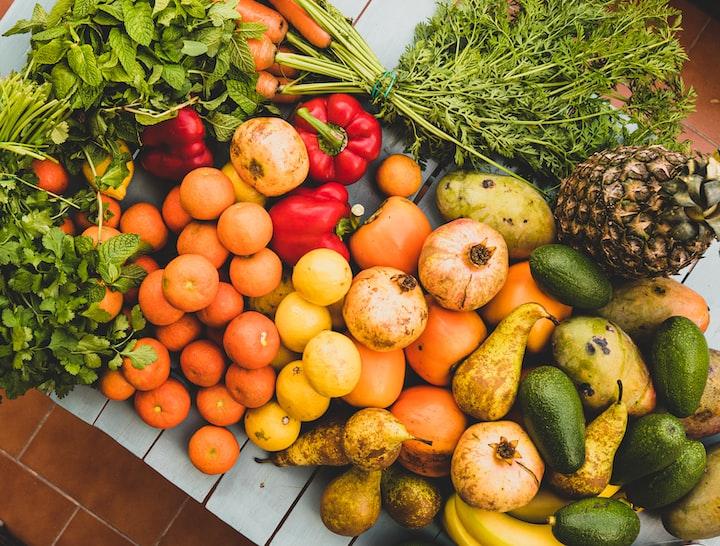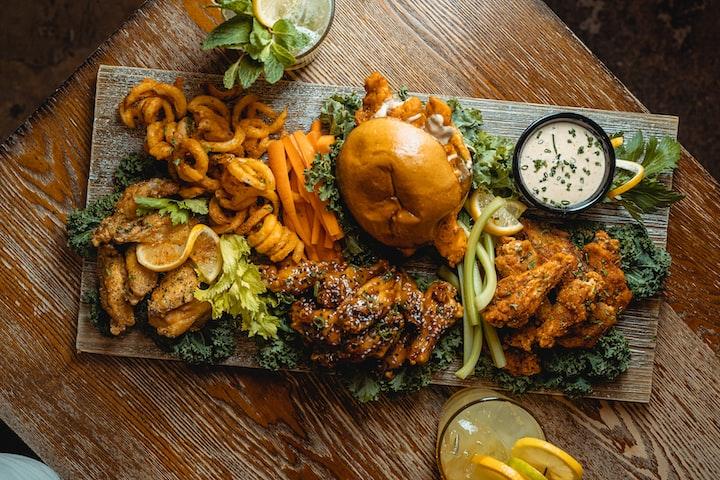Carbohydrates are one of the three macronutrients (along with protein and fat) and are essential for human health. Carbohydrates are found in a variety of foods, including fruits, vegetables, grains, and dairy products.
There are three main types of carbohydrates: sugars, starches, and fiber. Sugars are the simplest type of carbohydrate and include both natural sugars (such as those found in fruits and honey) and added sugars (such as those found in candy and soda).
Starches are complex carbohydrates that take longer to digest than sugars; they include foods such as breads, pastas, rice, and potatoes. Fiber is a type of carbohydrate that can not be digested by the body; it includes foods such as beans, legumes, whole grains, and many vegetables.
The recommended daily intake of carbohydrates varies depending on factors such as age, activity level, and whether you are trying to lose weight; however most experts recommend that 45-65% of your daily calories come from carbohydrates. That means that if you consume 2200 calories per day then you should aim for between 990-1430 calories from carbohydrates or 165-238 grams per day.
Breads, grains, and pasta
Breads, grains, and pasta are all excellent sources of carbohydrates. Carbohydrates are essential for the body to create energy, and they can be found in a variety of foods. Breads, grains, and pasta contain complex carbohydrates that take longer for the body to break down and use for energy. This means that complex carbs provide a slow and steady source of energy rather than a quick burst like simple carbs do.
Whole grain breads, brown rice, quinoa, oats, barley, and wheat germ are all great sources of complex carbs. These foods also contain fiber which is important for digestive health. Fiber helps to keep you feeling fuller longer after eating so you’re less likely to snack between meals. Getting enough fiber can also help reduce your risk of constipation or other digestive issues.
Including breads, grains, and pasta as part of a healthy diet can help you stay energized throughout the day while also getting important nutrients like fiber that your body needs.
Nuts and Legumes

Nuts and legumes are a good source of carbohydrate. One ounce (28 grams) of almonds contains 6 grams of carbs, while one ounce (28 grams) of walnuts contains 4 grams of carbs . Both nuts are also high in fiber, with almonds providing 3 grams per ounce and walnuts providing 2 grams per ounce. Cashews have a lower carb content than both almonds and walnuts, with one ounce (28 grams) containing 5 grams of carbs.
Legumes such as beans, lentils, chickpeas, and peas are another excellent source of carbohydrate.
Milk and yogurts
Milk and yogurts are excellent sources of carbohydrates. They are rich in lactose, a natural sugar that is easy to digest. Milk and yogurts also contain other nutrients like protein, calcium, and vitamins A and D.
“There are three primary sources of carbohydrates – sugars, starches and fiber.”
Fruits

Carbohydrates are found in a wide variety of foods, from fruits and vegetables to grains, legumes and dairy. Here are seven sources of carbohydrates to add to your diet:
1. Fruits
Fruits are a great source of natural sugars and fiber. Eat them fresh, dried or juiced for a quick dose of energy.
2. Vegetables
Most vegetables contain small amounts of carbohydrates, as well as vitamins, minerals and antioxidants. Choose non-starchy varieties like leafy greens, broccoli and tomatoes for the healthiest option.
3. Grains
Grains provide complex carbohydrates that take longer to break down and be absorbed into the bloodstream than simple sugars. Opt for whole grains like quinoa or barley instead of processed options like white bread or pasta.
4. Legumes
Beans, lentils and peas are all high in fiber and protein while low in calories. They make an excellent addition to soups, salads or grain dishes.
5. Dairy
Milk contains lactose, a type of sugar that is broken down more slowly than other carbs. Yogurt and cheese can also be good sources of protein and calcium. Choose low-fat or fat-free options for the healthiest option.
Whole milk contains more fat than 2% milk which contains more fat than 1% milk which contains more fat than skim milk. Half-and-half is equally divided between milk fat and cream and has about twice the amount of milk fat found in whole milk. Cream is the highest in milk fat content and has about 3 times as much as whole milk.
6. Nuts
Almonds, cashews, pistachios, walnuts (all technically drupe s not nuts) and peanuts (actually a legume) all have carbs – mostly in the form of fibers but also some sugars.
7. Seeds
Chia seeds, flaxseed s and pumpkin seeds are higher in carbs than most other kinds but they’re also rich in fiber and offer other nutrients like magnesium.
Sauces and condiments
Most sauces and condiments get their sweetness from added sugar. However, some do get their sweetness from fruit or vegetable juices. For example, cranberry sauce is mostly just cranberry juice with added sugar. And some hot sauces use tomato paste as their base ingredient.
If you’re watching your carbohydrate intake, be sure to read the labels on all sauces and condiments before using them. You may be surprised at how much sugar some of them contain!
